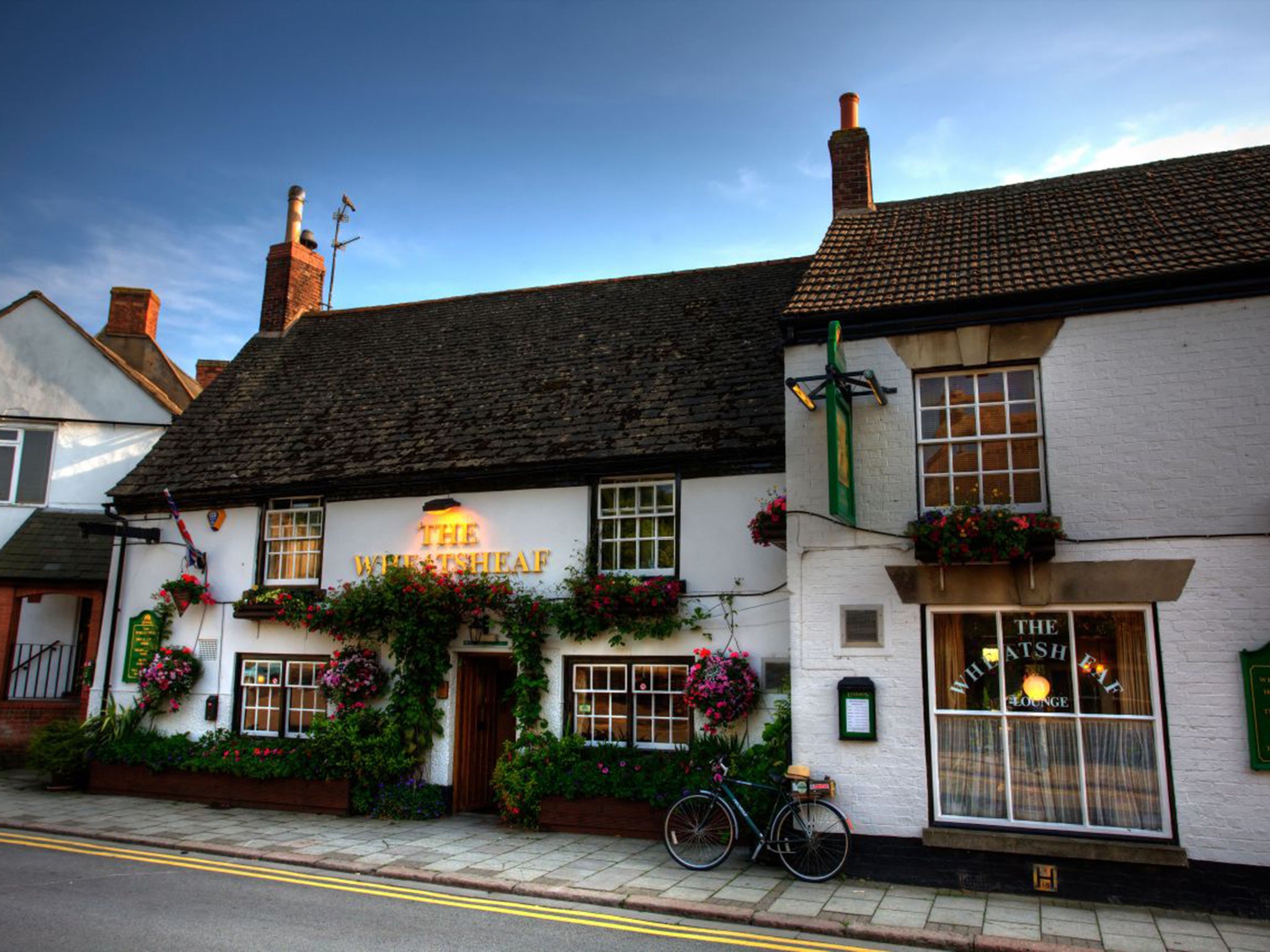The Battle of Rutland: Why the council refuses to sign up to the FSA food hygiene rating scheme
Reluctance to sign up 'does not reflect on county's hygiene standards'

Oakham, the largest town in England’s smallest county, does not seem a rebellious place. Bunting flutters above its pretty high street where Leeson Family Butchers is promoting its prize-winning Stilton sausage.
But appearances can be deceptive. In one respect, Rutland is a maverick: it is the only local authority in England that has not signed up to the Food Standards Agency’s hygiene rating scheme, more commonly known as “scores on the doors”.
The scheme awards any food outlet – from school canteens and humble takeaways to Michelin-starred restaurants – a hygiene rating ranging from no stars (“urgent improvement necessary”) to a squeaky-clean five stars. Introduced by the Food Standards Agency (FSA) in December 2008, the scheme is firmly established in England, Northern Ireland and Wales. Scotland operates a similar system called the Food Hygiene Information Scheme.
The regime is gradually gaining teeth, says the FSA. In Wales, unlike the rest of the UK, it is now mandatory for food outlets to prominently display the rating certificate. Northern Ireland is scrutinising a draft Bill for mandatory display, and the FSA is hopeful that England will eventually follow the same path.
But in Rutland – the tiny landlocked county sandwiched between Leicestershire and Lincolnshire and home to 38,000 people – there are no scores on the doors, or anywhere else. Despite regular overtures from the FSA, the county has steadfastly refused to join the scheme.
Rutland’s reluctance to sign up does not reflect on hygiene standards in the county, says Terry King, the Conservative councillor who held the environmental resources portfolio when the FSA’s first attempts to persuade Rutland to join were rebuffed. He points out that the county’s food outlets are regularly and thoroughly inspected according to FSA guidelines.

“Come on,” said Mr King, “have you found anywhere where [the ratings system] has made a difference? ... We worked out it would cost us £15,000 to implement, and we couldn’t see the benefit.”
The cost of introducing the scheme wasn’t the only reason for the council veto. Mr King says the FSA gave councillors “no clear idea” what the benefits might be, and there was concern that businesses handed a poor rating would “wait months” for a fresh inspection that would reflect any improvements that were made. In addition, the fact that food outlets in England are not required to display their certificate means, said Mr King, that “unless someone gets five stars, you’re not going to see them”.
A failure to advertise and promote the scheme to the public also prompted Rutland to opt out, said Mr King.
“We’re independent in Rutland and we try to make independent choices,” he said. Given that the council’s budget is under pressure – it needs to trim £3m-£4m from a £30m budget over “the next few years” – it seems unlikely that scores on the doors will be embraced in the short term.
An FSA spokeswoman told The IoS that the scheme is “driving up food hygiene standards” across the UK. She said that safeguards ensure that all businesses are treated fairly, and “nearly 70 per cent of people” now recognise the distinctive green and black stickers.
The scheme gives “recognition to businesses that take food hygiene seriously and it is putting those not meeting the grade in the spotlight”, the spokeswoman added.
The only point on which the FSA and Rutland County Council seem to agree is that it would be better if all businesses were required by law to display their rating certificate. But the FSA notes that the ratings for more than 400,000 food outlets can be found on its website.
In the meantime, it is gathering evidence to support a case for mandatory display, and “the Government will consider this evidence carefully once it is available”.
Rutland council says it consulted food businesses in the county about the FSA scheme and the consensus was that it would be of “no benefit”. But the views of owners, managers and landlords interviewed by The IoS last week were less unanimous.

“I’d love to be part of it – it would be doing me a favour,” said Dan Lacey, the landlord of The Wheatsheaf in Oakham. “My kitchen is spotless, but I know there are other places where the kitchens are in a bad condition.” Colin Crawford, the owner of The Finch’s Arms in nearby Hambleton, was less enthused. The scheme would reassure the public that a “place is OK and it has a certain standard of hygiene”, but the county’s current hygiene inspections were rigorous. “The inspector’s strict, but sensible.”
Rutland’s residents seemed largely nonplussed by the county’s outlier status. Peter Jones, who runs the antiques shop Swans of Oakham with his stepson, Tom Scott, said: “We’re beset by more and more bureaucracy – we don’t need more.” Mr Scott said the ratings scheme was “sensible”, but he worried that the “personalities and quirks” of individual inspectors might skew the results.
Would Mr Scott check a food outlet’s hygiene rating before visiting it? “Personally, no,” he said. “I might be more interested if I was going to Cambridge or London, but around here you tend to know the businesses and you often know the owner.”
Join our commenting forum
Join thought-provoking conversations, follow other Independent readers and see their replies
Comments